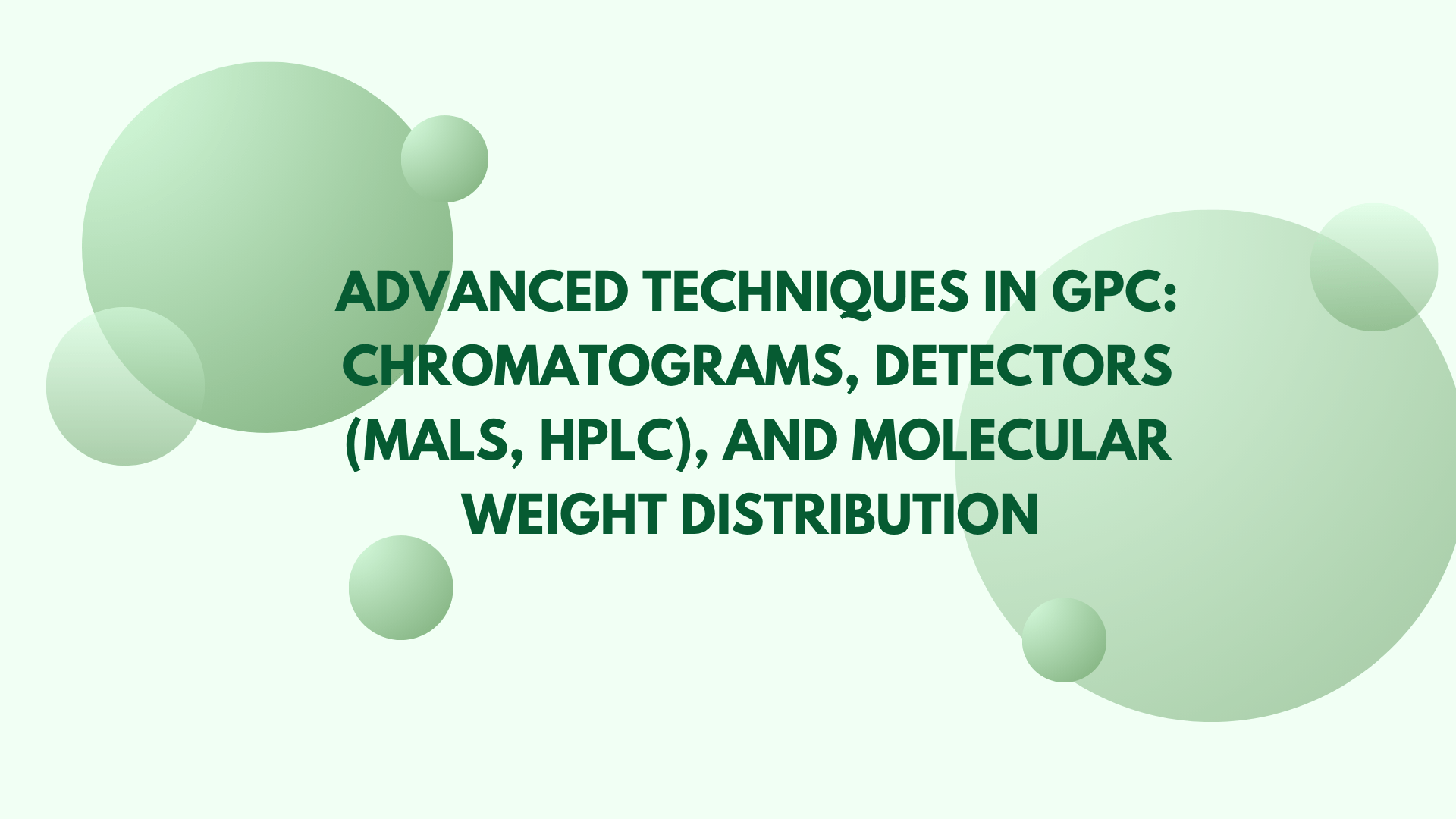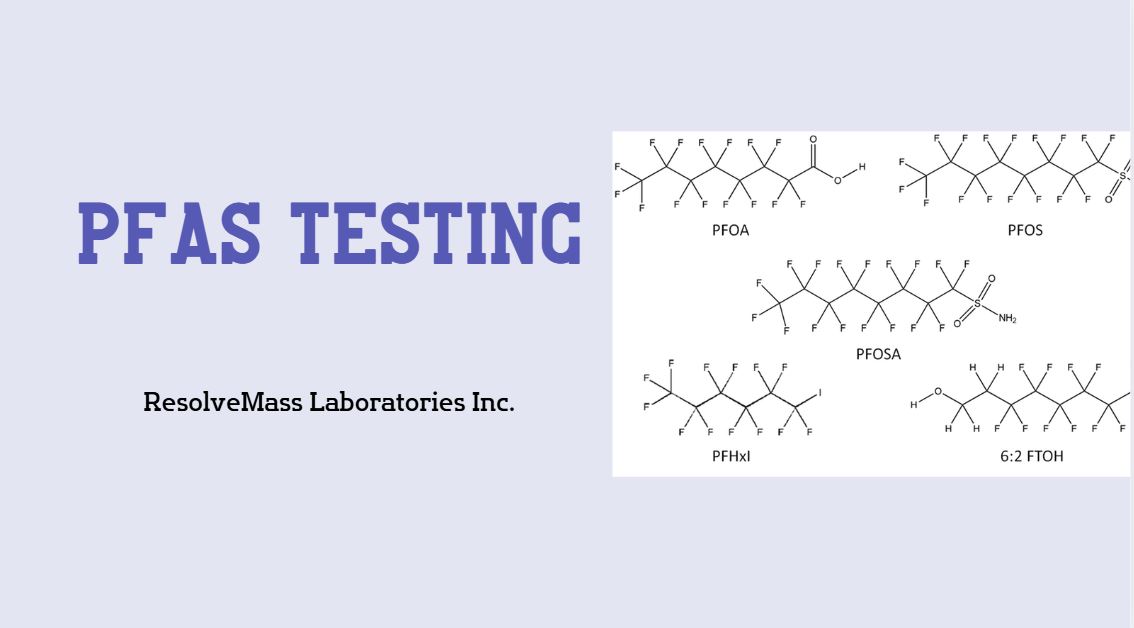Introduction: The Role of Molecular Weight by GPC in Polymer and Peptide Testing
At ResolveMass Laboratories, molecular weight by GPC plays a key role in analyzing polymers, peptides, and biopharmaceuticals. This method helps in understanding how molecules behave based on their size, which is important for both research and product development. By using Gel Permeation Chromatography (GPC), our scientists get detailed data about molecular size and distribution.
With advanced tools like MALS GPC and GPC HPLC, we ensure high-quality results. Our team works with high-temperature setups and customized GPC instruments that make analysis reliable even for complex or sensitive materials.
What Is GPC and Why Molecular Weight by GPC Matters
Gel Permeation Chromatography (GPC) is a method that separates molecules by their size in solution. It doesn’t depend on charge or chemical properties. Instead, it focuses purely on size, making it perfect for measuring molecular weight by GPC. This includes values like number average (Mn), weight average (Mw), and Polydispersity Index (PDI).
We use GPC to understand how consistent and uniform materials are, which is essential for quality control and research. Whether you’re testing a new polymer or a peptide drug, our GPC analytical services deliver the data you need.
Related Services:
👉 Peptide Characterization Service
👉 Peptide Sequencing Service
👉 NMR Peptides
Interpreting the GPC Chromatogram
A GPC chromatogram shows how molecules elute over time, helping us understand the size distribution in a sample. Larger molecules come out first because they can’t enter the small pores in the column, while smaller ones take longer.
Key features of a chromatogram include:
- Peak Width: Shows how uniform or mixed your sample is.
- Retention Time: Tells us about the molecule’s size.
- Peak Area: Helps estimate how much of each component is present.
Our team analyzes these details carefully to provide clear results that support development and production decisions.
Advanced GPC Instrument Setups at ResolveMass
At ResolveMass, we use various GPC instruments to handle all types of samples. Our lab is equipped for:
- Aqueous GPC: For peptides, proteins, and water-soluble compounds.
- Organic GPC: Ideal for synthetic polymers and copolymers.
- High-temperature GPC molecular weight testing: Designed for challenging samples like polyolefins and engineering plastics.
Each GPC system is paired with multiple detectors such as:
- UV and Refractive Index (RI) for standard detection.
- MALS GPC for absolute molecular weight without calibration.
- Viscometers for viscosity data.
- DLS for size distribution and aggregation.
This combination ensures accurate and repeatable results every time.
Molecular Weight by GPC with MALS: No Calibration Needed
Multi-Angle Light Scattering (MALS) brings a new level of accuracy to molecular weight by GPC. Instead of comparing your sample to a reference, MALS measures how light scatters at different angles to calculate molecular weight directly.
Benefits of MALS include:
- No need for calibration curves, which improves reliability.
- Works well with complex molecules like branched polymers.
- Excellent for analyzing PEGylated peptides and conjugated biologics.
When high accuracy is needed, especially for new or modified molecules, MALS GPC provides unmatched value.
GPC HPLC: Combining Size Separation with High Performance
GPC HPLC systems merge size-based separation with the high resolution of traditional HPLC. This approach is perfect for identifying low molecular weight impurities and minor components that may affect performance or safety.
Advantages include:
- Better resolution, especially for mixed or degraded samples.
- Dual detection systems, such as UV and MALS working together.
- Higher sensitivity, which is essential for detailed quality control.
This hybrid system offers a powerful tool for pharmaceutical and polymer testing.
The Importance of Understanding Molecular Weight Distribution
Knowing the molecular weight distribution of a sample helps predict how it will behave in real-world applications. A consistent distribution often means better product quality and stability.
Some applications include:
- Checking batch consistency in manufacturing.
- Evaluating performance of plastics and synthetic materials.
- Monitoring stability in biologics to detect early degradation or aggregation.
We provide detailed reports with values like Mn, Mw, Mz, and PDI, along with GPC chromatograms and expert analysis.
Related Services:
👉 Peptide Sequencing Service
👉 NMR Peptides
High Temperature GPC Molecular Weight Testing for Tough Samples
Certain polymers don’t dissolve easily at room temperature. That’s why we use high temperature GPC molecular weight testing to analyze complex samples like thermoplastics.
Key features:
- Solvents like TCB and o-dichlorobenzene are used.
- Systems operate up to 160°C.
- Perfect for high-density, non-polar materials like polyolefins.
This setup ensures complete dissolution and accurate molecular weight readings.
Molecular Weight by GPC in Industry and Research
Our GPC analytical services are widely used across various fields:
- Peptide drugs: Ensure size and sequence accuracy.
- Polymer research: Support new material development.
- Bioconjugates: Measure changes due to linking agents.
- Degradation studies: Track aging and stability.
- Formulation quality control: Confirm consistency in production.
Each analysis is tailored to fit your specific goals and requirements.
Why ResolveMass Laboratories Is a Trusted Partner
Clients choose ResolveMass because we deliver:
- 20+ years of expertise in GPC and molecular testing.
- Reliable results validated by pharma, biotech, and research labs.
- Detailed documentation, including raw data and expert interpretation.
- Modern infrastructure, with MALS, RI, UV, and GPC HPLC systems.
- Regulatory support for FDA and EMA submissions.
We are committed to offering results that you can trust.
Related Services:
👉 Peptide Characterization Service
👉 Peptide Sequencing Service
Conclusion: Choose ResolveMass for Molecular Weight by GPC
At ResolveMass Laboratories, we provide precise and reliable molecular weight by GPC analysis using cutting-edge technologies like MALS and high-temperature GPC. Our deep knowledge and robust instrumentation ensure that your data is accurate and ready for critical decisions. Whether you’re in R&D or full-scale production, we are your trusted partner in molecular testing.
Explore how our expertise can support your next discovery.
📞 Contact Us
📩 Contact Our Experts
📬 Reach Out Today
FAQs: Molecular Weight by GPC
How is GPC molecular weight determined?
GPC, or Gel Permeation Chromatography, measures molecular weight by separating molecules based on their size in a solution. Larger molecules pass through the column faster, while smaller ones take longer. Detectors like RI, UV, or MALS help calculate values like number average (Mn) and weight average (Mw) molecular weights.
Molecular weight plays an important role in how well a material sticks to a surface. Higher molecular weight often leads to better strength and durability of adhesives. However, very high molecular weight can reduce flow, making it harder to spread or bond properly.
GPC works on the principle of size exclusion. It separates molecules based on how big they are in solution, not on chemical interactions. Larger molecules can’t enter the small pores of the column and come out first, while smaller ones take more time to pass through.
Universal calibration is a method in GPC that uses a relationship between molecular weight and intrinsic viscosity. Instead of using just one type of polymer as a standard, it considers different types by applying a common equation. This gives more accurate results across various polymer types.
Materials used in GPC include columns packed with porous beads, mobile phases like solvents (e.g., THF or water), and detectors like RI, UV, or MALS. The samples can be polymers, peptides, or proteins, depending on the test. Equipment also includes pumps, autosamplers, and temperature controls.
MALS, or Multi-Angle Light Scattering, is used in GPC to measure the absolute molecular weight of molecules without needing calibration standards. It gives highly accurate results, even for complex or branched polymers. MALS is helpful when you need detailed data on the exact size and structure of molecules.
High temperature GPC is used for tough or hard-to-dissolve polymers like polyolefins, nylon, and some engineering plastics. These materials need heat and special solvents to fully dissolve. Testing at high temperatures ensures complete analysis and accurate molecular weight results for these challenging samples.
The choice depends on your sample and what information you need. RI (Refractive Index) is a general-purpose detector used for most polymers and works with compounds that don’t absorb UV light. UV is ideal for samples with UV-active groups, like peptides or aromatic polymers. MALS is best when you need absolute molecular weight without relying on calibration, especially for complex or branched molecules. Often, using a combination of detectors gives the most complete results.


